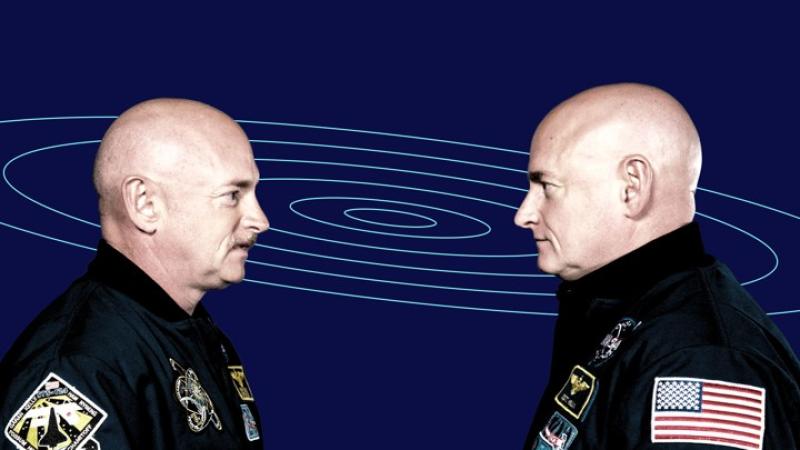What a Year in Space Did to Scott Kelly


An unprecedented and illuminating study monitored identical twins, one in space and one on Earth.

In the debate over whether human beings should set off to other worlds beyond Earth, one of the most compelling cons is this: Our bodies don’t like it.
Few people know this better than Scott Kelly, the NASA astronaut who spent nearly a year on the International Space Station from 2015 to 2016. Like other astronauts, Kelly served as a test subject in the study of space travel’s effects on the human body. Unlike other astronauts, Kelly has an identical twin, Mark, an astronaut himself. This gave researchers an uncommon opportunity to monitor the two brothers as they lived in two very different environments—one on Earth and the other 250 miles above it.
According to their results, published Thursday in Science , Scott experienced a number of changes that Mark did not. Most of those changes went away after Scott returned to Earth. The long stint in space, the researchers say, produced some unexpected changes—but did not lead to any clinically significant health differences.
The body, sensing and reacting to weightlessness, bristles at life in space. Fluids float freely and clog the sinuses, giving faces a puffy appearance. Bones, relieved of the job of bearing weight, thin. Muscles, faced with the same, atrophy. Parts of the eyeball, for reasons scientists are still trying to pin down , become squished or swollen. And from head to toe, cells, exposed to unearthly levels of radiation, become more at risk for cancer.
Only the brain seems to love it; after all, it’s the one that fervently processes the beautiful views of the gleaming planet below, delights in the somersaults made natural by microgravity, and comprehends—or at least attempts to comprehend—the wonder of being there, in outer space .
 Article is LOCKED by moderator [smarty_function_ntUser_get_name: user_id or profile_id parameter required]
Article is LOCKED by moderator [smarty_function_ntUser_get_name: user_id or profile_id parameter required]



Space, the ultimate frontier.
How far can we go if our bodies can't really handle it?
No politics please.
Our bodies like gravity. We evolved on Earth that has an abundance of gravity (for a lack of better way of expressing it) and so things work better....like our eyeballs.
Our eyeballs float on a sea of liquid.....they already stated that the lack of gravity messes with the fluid in our bodies.
EEEwwww.
In the movies they always spin to create gravity.
That, in theory creates centrifugal force which would allow people to walk normally on the inner walls of the outside skine of the presumably cylindrical spaceship.
only true mass can create the gravity we are used to.
Then how did the Enterprise do it?
We are, by evolution and nature explorers.
Space presents unique challenges.
I feel, over time we are up to meeting them.
Technology is a response to challenges in life.
Enoch.
Thank you Enoch.